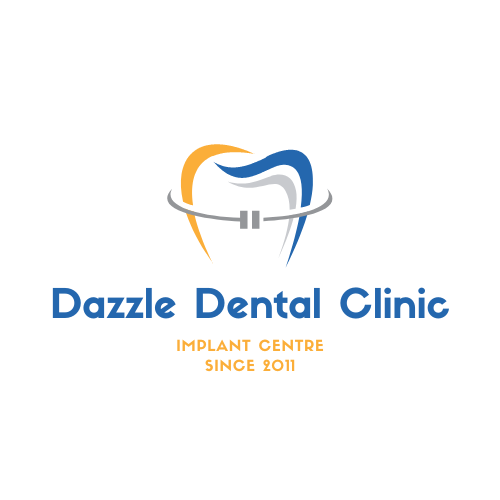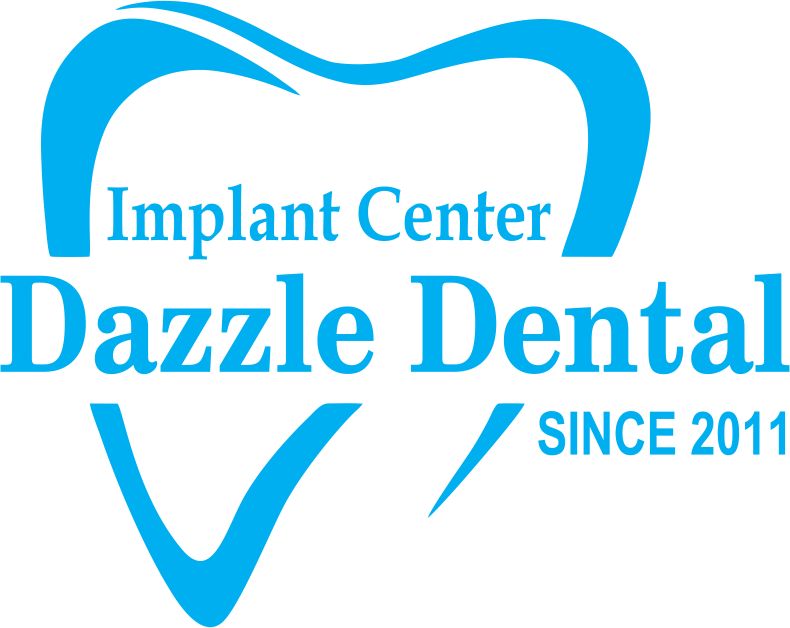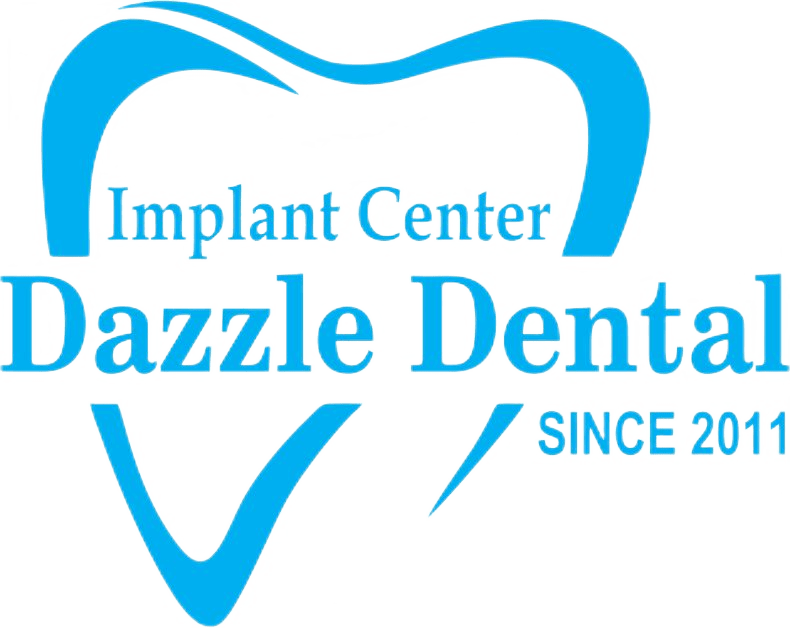Wisdom Tooth Surgery
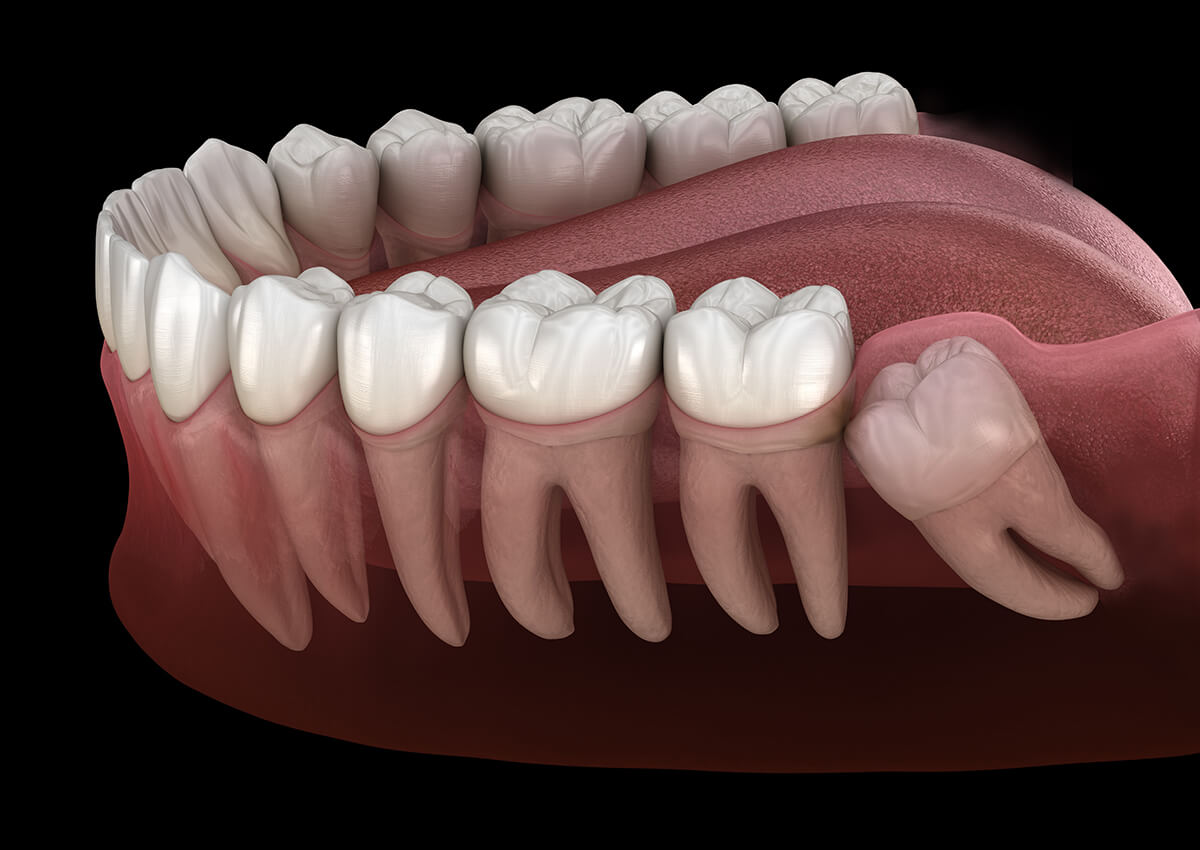
What are Wisdom Tooth Surgery?
Wisdom teeth, also referred to as third molars, are the last set of teeth to emerge. Typically, they appear in the late teens or early twenties, although delayed eruption into adulthood is not uncommon.
When wisdom teeth emerge without any complications, they can be considered beneficial. However, the issue with these molars arises when they fail to erupt properly or become misaligned. In such cases, extraction becomes necessary. Misaligned wisdom teeth can pose a risk of damaging the adjacent teeth.
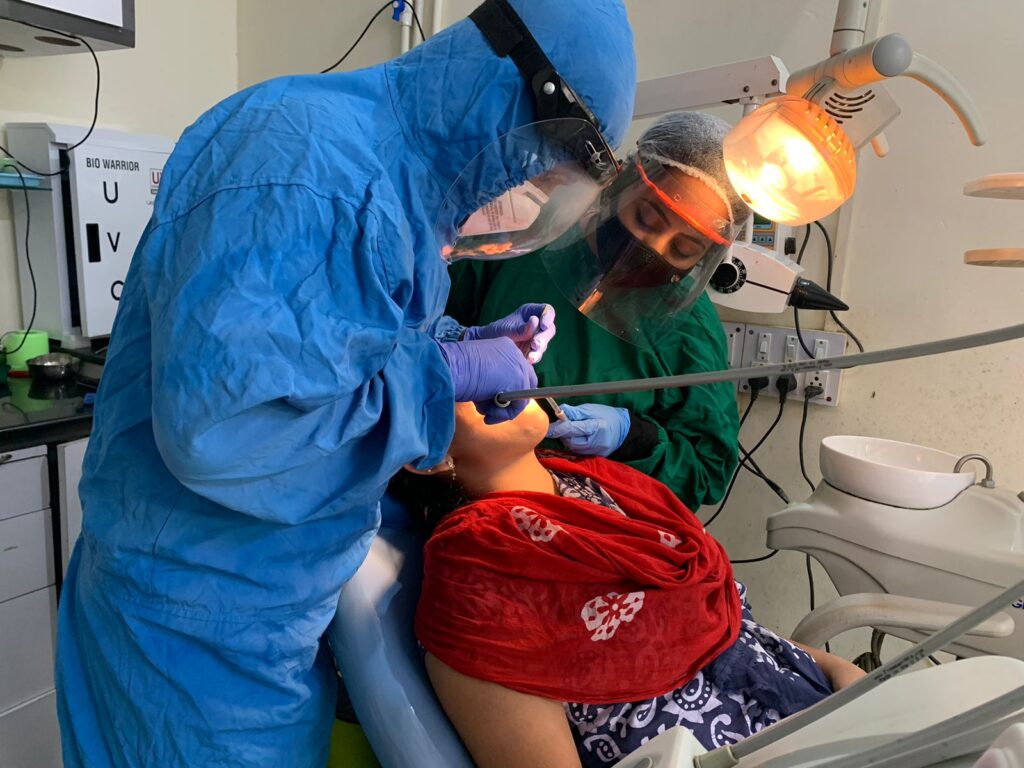

WHAT PROBLEMS CAN WISDOM TEETH CAUSE?
Wisdom teeth can present several problems, including:
1. Impaction: Sometimes, wisdom teeth remain trapped in the soft tissue and partially break or erupt through the gums.
– If the eruption is incomplete, it creates an opening where bacteria can enter, leading to infection, jaw swelling, pain, and overall discomfort.
– Misaligned wisdom teeth can make proper oral hygiene practices such as brushing and flossing difficult, increasing the risk of tooth decay and gum disease.
2. Limited Jaw Development: Due to lifestyle changes, some individuals do not develop fully formed jaws, which can restrict the eruption of wisdom teeth.
SYMPTOMS THAT MAY INDICATE THE NEED FOR WISDOM TOOTH REMOVAL:
1. Pain behind the molars that may intensify over time.
2. Redness, swelling, and tenderness, which can signify infection.
3. Persistent foul breath or an unpleasant taste in the mouth.
4. Jaw pain and stiffness.
Cost Of Dental Implant
The cost of dental implants may raise concerns for some patients, but they are a worthwhile investment. Although the procedure involves multiple components, which may create an impression of higher expense, it is crucial to recognize the long-term benefits. Failing to replace a missing tooth with an implant can result in adjacent teeth shifting and eventual jawbone loss, leading to more costly complications. In comparison, a single dental implant proves to be a more cost-effective solution in the long run.
SHOULD WISDOM TEETH BE REMOVED?
Wisdom teeth may need to be removed if the following problems arise. A dentist can diagnose and provide guidance regarding removal:
1. Crowding: Misaligned wisdom teeth can harm adjacent teeth, causing crowding and bite issues.
2. Jaw Damage: Wisdom teeth can damage nerves and affect the integrity of the jawbone.
3. Sinus Issues: Wisdom teeth can contribute to sinus pain and congestion.
4. Gum Problems: Swelling and difficulty in cleaning the area around the wisdom teeth can lead to gum inflammation and infection.
5. Gum Pocket Formation: Swollen gums can create pockets, promoting tooth decay and further dental problems.
PROCEDURE FOR WISDOM TOOTH EXTRACTION
The procedure for extracting wisdom teeth can vary depending on the stage of eruption. If the wisdom tooth has fully erupted, extraction is relatively straightforward. However, if the tooth is impacted, an incision in the gums may be necessary. In such cases, the tooth is often extracted in sections to minimize the amount of bone removal required.
POST WISDOM TOOTH REMOVAL CARE:
1. Avoid vigorous rinsing or touching the extraction site to promote proper healing.
2. If you experience discomfort, take the prescribed medication as directed.
3. Some bleeding is normal, but if excessive bleeding occurs, seek immediate dental attention.
4. Swelling around the mouth and cheeks is common for a few days after the extraction.
5. Follow a liquid diet for the initial days, and avoid using a straw to prevent complications.
6. Brush your teeth gently twice a day, ensuring you are cautious around the extraction site.
PRICE OF TOOTH EXTRACTION:
The cost of a tooth extraction can vary based on factors such as the tooth’s position, degree of impaction, anesthesia requirements, and the need for sutures. It is essential to discuss these factors with your dentist, as they may influence the overall cost of the procedure.
